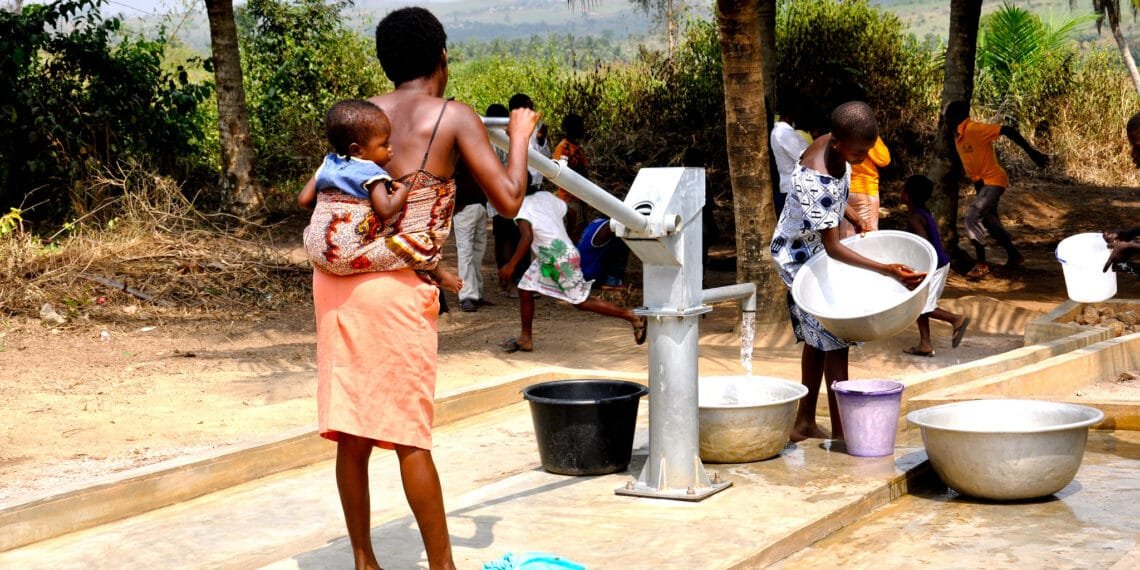The Corporate Accountability and Public Participation Africa (CAPPA) has condemned the Lagos State Government for pushing a single policy direction, which is to privatise water utilities without considering alternative management models, to the detriment of disadvantaged communities within the state.
It expressed grave concerns about statements made during the just-concluded Lagos International Water Conference (LIWAC 5.0), organized by the Lagos State Water Regulatory Commission (LASWARCO) and its partners from June 25 to June 26, 2024.
The environmental watchdog pointed out that although the LIWAC 5.0, with the theme: Financing Water and Sanitation for a Greater Lagos, gathered government stakeholders, private sector investors, diplomats and international NGOs to explore innovative funding solutions for the state’s water sector, the conference exclusively presented Public-Private Partnerships (PPPs) as the only viable option.
CAPPA noted that the bias was evident in the speeches of the Lagos State Governor, Minister of Water Resources, representatives of the United States Agency for International Development (USAID), Lagos State Commissioner for the Environment and Water Resources and other pro-privatisation speakers.
Response to submissions at the conference in a statement issued by the Media and Communications Officer of CAPPA, Robert Egbe, the group faulted the overwhelming presence of experts of pro-privatisation of public water utilities, stating that while it is undeniable that Lagos State is facing a potable water crisis, PPPs are not the only solution, in spite of what advocates of profit-driven models may claim.
“Alternative approaches, such as public control and community management of water, have consistently proven effective in addressing water challenges across the world, offering a more inclusive and sustainable intervention in the face of a global water crisis.
“It is crucial to remind the Lagos State Government that credible evidence from Africa and elsewhere demonstrates that water privatisation does not enhance community access to water. If anything, examples from Gabon, Cameroon, Ghana, Mozambique and Tanzania show governments struggling with legal and financial challenges to de-privatise after failed privatisation attempts.
Read Also: RDI knocks FG, state governments over deaths from Cholera outbreaks
“Only recently, Niger re-municipalised its water utilities following decades of privatisation, and Senegal, often cited as a privatisation success in Africa, faces public backlash over rising costs and water scarcity, prompting an audit of all PPP contracts,” the statement reflected.
Decrying the absence of frontline communities at the conference, CAPPA noted that vulnerable groups such as women, girls, persons with disabilities, and members of informal communities — who suffer the most from lack of access to safe public water — were poorly represented at the LIWAC 2024. The organisation further criticised the notable absence of pro-public water civil society organizations and water justice advocates.
The group encouraged the Lagos State government to embrace sustainable water financing models that prioritise meaningful engagements with these critical stakeholders and groups. It also urged authorities at the helm of affairs to listen to communities on the frontlines of the water crisis, including CSOs and social movements mobilising at the grassroots level.
“Ultimately, the Lagos State Government must adequately fund its water sector and shun privatisation pressures from international financial institutions and private water corporations. The discussions at LIWAC 2024 were dominated by free-market ideals that promote water as an economic good rather than a social necessity, an immoral stance given the systemic and historic defunding of the state’s water sector.
“CAPPA urges the Lagos State Government to re-evaluate its reliance on PPPs in the water sector and prioritise democratic control of water utilities.
“Water privatisation is not the silver bullet it claims to be as the LIWAC conference keynote speaker’s case study of Metro Manila in the Philippines, ironically illustrated. The reality of water privatisation in Manila sharply contrasts with the image the World Bank and others try to paint as a story of privatisation success. Water privatisation in Metro Manila led to a 300 percent increase in tariffs, workforce downsizing and substantial government debt at the end of the concession contracts.
“For Lagos residents, water privatisation would mean steep and unrealistic water cost increases, mass job losses at utilities (evidenced by the sacking of over 800 water workers in Lagos State), corporate grabbing of public water, a decline in water quality, a general deterioration in the quality of life, and significant economic and social liabilities for the Lagos State Government.”






